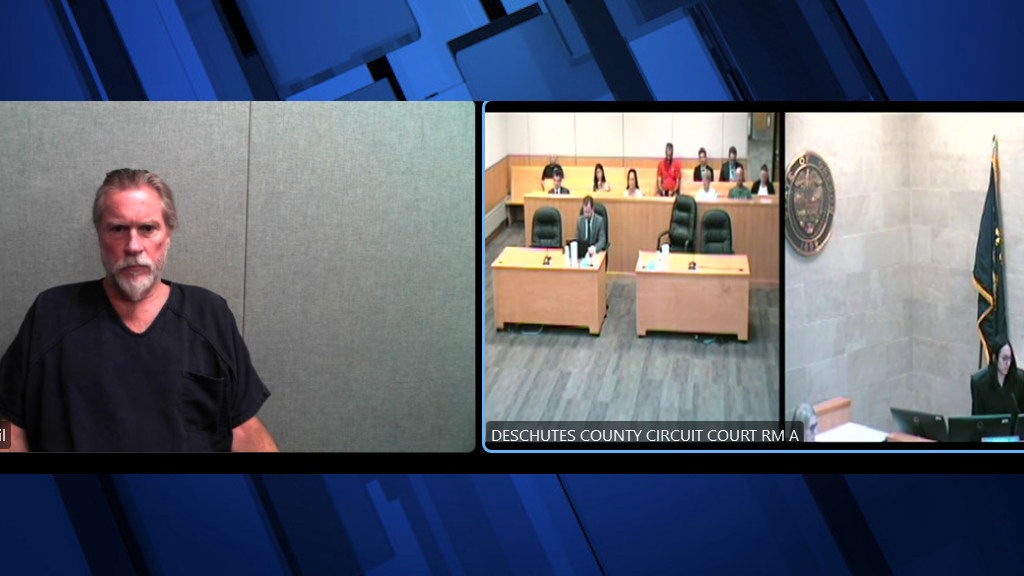Judge rejects defense request to toss indictment in Bend baseball-bat attack over leg restraint, 2 deputies in grand jury room

BEND, Ore. (KTVZ) – A Deschutes County judge on Monday rejected a defense request to throw out the indictment of a Bend man accused of attempted murder in an August baseball-bat attack on his roommate due to a leg restraint he was wearing under his clothes and two armed deputies in the room when he testified before a grand jury.
Circuit Judge Alycia Sykora made the ruling after hearing final arguments on a defense motion to quash the indictment of Timothy John Boyd 66, who also is charged with first-degree assault and a unlawful use of a weapon in an August 18 attack that critically injured Stephen Jay Steria, 58, at the home they shared on Southwest Arrow Wood Drive.
The focus of the motion and hearings was the circumstances under which Boyd was granted a rarely sought request to testify in person before the grand jury that heard witnesses, then issued the indictment - and more specifically, another judge's decision after a hearing to allow a “non-visible” leg restraint and two armed, uniformed deputies in the small grand jury hearing room.
Defense attorney Evander McIver claimed the two deputies’ presence “within arm’s length” of his client, and his limping gait with the “massive brace that is easily visible” under his pants prejudiced the grand jury against his client, violating his constitutional rights to due process and impinging on his presumption of innocence.
“It brings anxiety, it’s intimidating, it affects the testimony of the defendant,” McIver claimed.
McIver claimed restraints are only allowed if there is “immediate and serious risk of dangerous and disruptive behavior,” which Boyd had not exhibited, in terms of jail behavior or any other acts of violence.
Deputy District Attorney Joseph Langerman cited “legitimate safety issues,” including the layout of the room and nature of the charges.
“There’s no evidence the grand jury was aware of the restraints – none,” he said.
Sykora, ruling from the bench, said, “I understand the passions are high,” and noted the arguments had also turned on three judges’ involvement in the restraint orders – the last mistakenly referring to one deputy, not two in the room, which prosecutors said was a mistake – a “scrivener’s error.”
She also said she did not have provided any grand jury testimony or notes, nor measurements or schematics for the grand jury room, limiting her “ability to have full context” for the defense’s claims.
But the judge noted, more than once, that Boyd had called police to the home, had dried blood on his clothes and apparently not only acknowledged the attack, but claimed he intended to kill Steria, which he has since claimed was self-defense after an earlier assault upon himself.
Sykora also pointed out that “there is no evidence a grand juror saw the defendant” in a position where the knee brace would be visible, and from a provided photo, she said it “looks like a knee brace underneath clothing that we see people, older people wearing.” But his knees were under the table.
“Nothing requires restraint-free testimony,” she said, and “at no point did the defendant complain to a law enforcement officer it was too tight or restricted him.”
Boyd has pleaded not guilty to the charges. His trial is currently scheduled to begin Jan. 8 and last six days.
